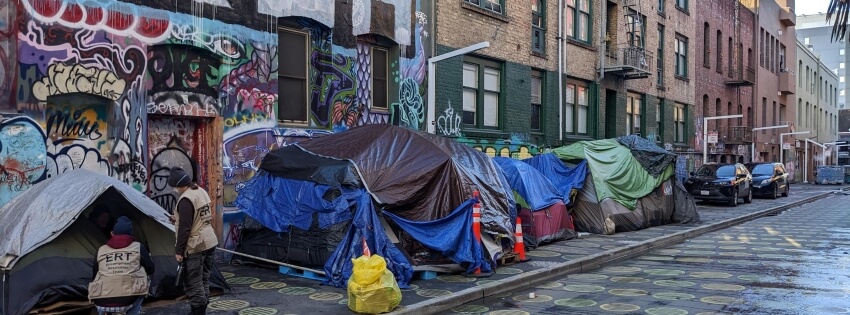
What to do if You're Stopped, Searched, or Swept While Unhoused
Esta página también se puede obtener en español.
If you are unhoused you have rights. The resource below will provide recommendations for how to navigate different scenarios when you encounter police.
Your rights during police encounters
- You do not have to consent to a search of yourself, your vehicle, or your belongings. Say: “I do not consent to any searches.”
- You have the right to observe and film events that are visible in public spaces so long as you do not interfere with officers’ actions. Observe from at least eight feet away.
- You have the right to remain silent. If you wish to remain silent, tell the officer and request an attorney. Do not say anything else. Police must stop questioning you.
- If you are not under arrest, you have the right to leave. Ask if you are free to do so. Say: “Am I being detained?” and/or “Am I free to go?” If they say yes, calmly leave.
- If you are arrested, you have the right to an attorney.
Your rights during encampment sweeps
- You have the right to receive written notice before a sweep.
- If you cannot take your belongings with you during a sweep, you have the right to ask for them to be stored—unless they are toxic or dangerous. Ask for a receipt and information about how to retrieve your belongings. You do not need to show ID or pay a fee to retrieve your belongings.
- If you have a disability, you have the right to an accommodation for additional time to move belongings or to receive other assistance during a sweep.
Other useful information
- Stay calm. Do not run, resist, or argue. Keep your hands where officers can see them.
- Do not interfere with or obstruct the actions of the police. You can observe and document from at least eight feet away.
- Remember details of any problematic encounter, including the time, date, and location, the officers’ badges and patrol car numbers. Write these details down as soon as possible.
- Do not discuss your citizenship status with anyone besides your attorney.
- Do not lie or provide false documents.
- File a written complaint or contact your local ACLU if you feel your rights were violated. You can call the Intake Line at the ACLU of Northern California at (415) 621-2488.
